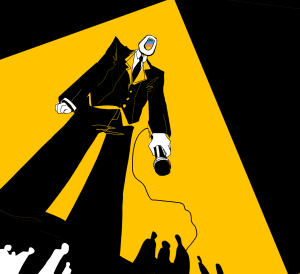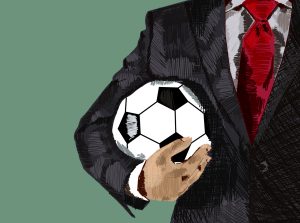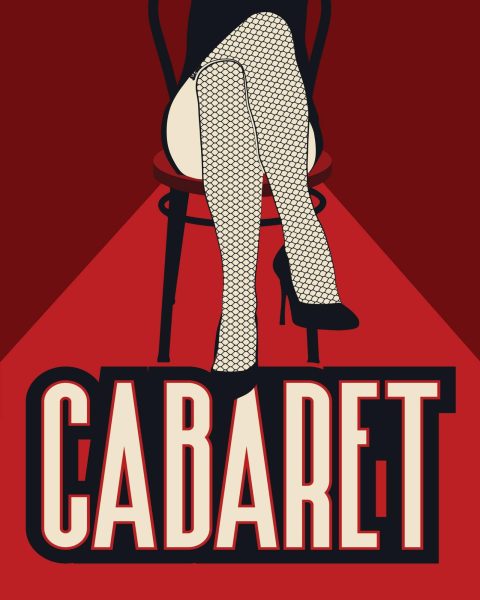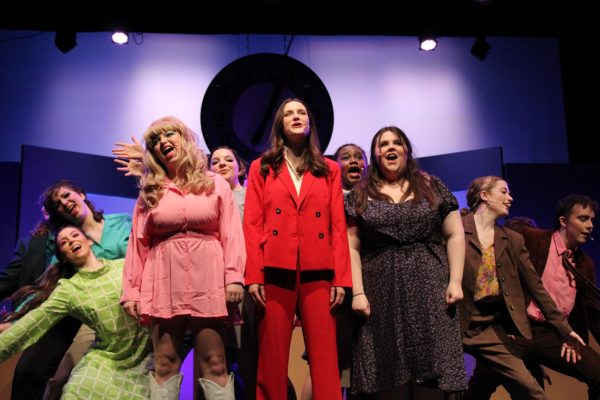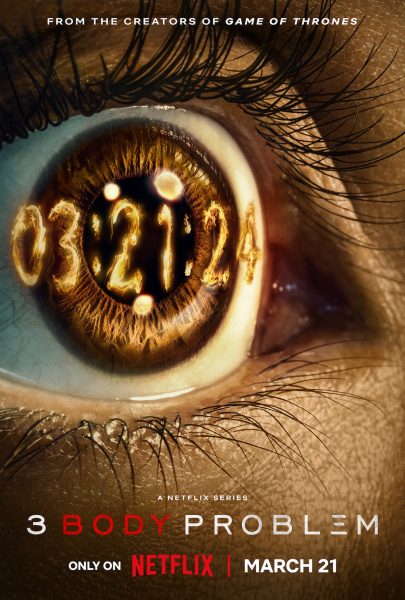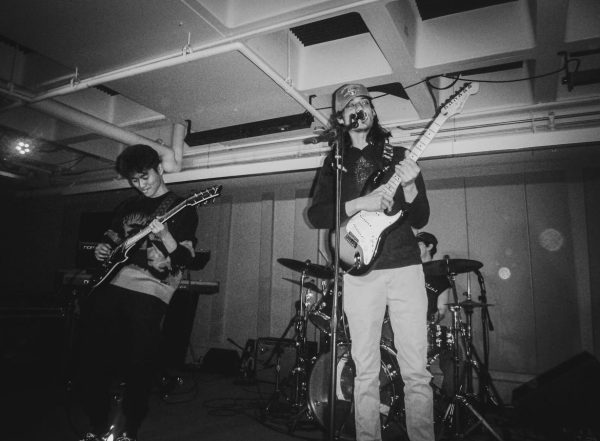Poetry for People Who Hate Poetry
February 15, 2019
It’s happening again.
Even as we speak, elsewhere—in a college dorm, maybe, or some recess of the internet—a word is changing.
Just as “cool” evolved in African-American jazz circles of the 1930s and 40s, coming to refer to musical temperament instead of temperature, so this word—whatever it may be—will change now.
In two years I’ll complain about hearing it from my students. In three years I’ll be saying it myself.
This is the trajectory of slang, that unofficial but essential wellspring of our language. The aspects of English we were never required to spell or diagram, and some we weren’t allowed to say in class at all.
When the word “slang” first appeared in English, in 1756, it named “the special vocabulary used by any set of persons of a low or disreputable character; language of a low and vulgar type.”
The historians of the language at the Oxford English Dictionary (OED) can trace the word’s evolving definitions, but even they are unsure of its etymology. “Slang” began, it seems, as slang: faddish, vogue, forgettable.
Yet it endures, “low and vulgar”—and in the work of great poets.
Shakespeare, for example, coined or repurposed hundreds of words (“dwindle,” “lackluster,” “swagger”). In Sonnet 135, he shows off the versatility—in standard and slang usage—of just one:
Whoever hath her wish, thou hast thy Will,
And Will to boot, and Will in overplus
[. . .]
So thou being rich in Will add to thy Will
One will of mine, to make thy large Will more.
The scholar Stephen Booth counts thirteen instances of the word “will” in the poem, referring to the poet’s name, the wish to act, the auxiliary verb (as in “I will”) and a euphemism for both male and female genitalia.
We 21st century readers may not register these slier, slangy connotations without some scholarly help. So brief is the shelf life of most slang that we miss the dirty jokes that had the Elizabethans snickering into their ruffs.
Slang endures because of—not in spite of—this changeability. In his essay “Slang in America” (1885), Walt Whitman describes slang as the democratic aspect of poetry, the material by which anyone, elite or coarse, might make of their own vocabulary a pleasure and an art:
“Language, be it remembered, is not an abstract construction of the learned, or of dictionary-makers, but is something arising out of the work, needs, ties, joys, affections, taste, of long generations of humanity, and has its bases broad and low, close to the ground. Its final decisions are made by the masses, people nearest the concrete, having the most to do with actual land and sea.”
Whitman admires “the daring and license of slang”: in Tennessee, he writes, undiluted alcohol is “barefoot whiskey”; a plate of ham and beans in New York is “stars and stripes.” What the OED calls “low and vulgar” Walt Whitman treats as a commons, a reserve in the realm of language where anyone can meet anyone else.
At least in theory.
After all, as Michael Adams argues in “Slang: The People’s Poetry,” slang is “rooted in [. . .] the complementary needs to fit in and to stand out.”
One function of slang is to communicate with some (a teen clique, maybe) what it conceals from others (parents, teachers, other cliques); in this way it also communicates its own status as privileged dialogue.
Slang stakes our claim to belong to a particular group and establishes a position within that group. The creativity of slang, Adams writes, “asserts our everyday poetic prowess.”
This is just what I mean when I argue that we live with poetry all the time. Even if you haven’t read a poem since high school, your slang contributes to the artistry of language. In your own words, this thousand-year-old mongrel tongue becomes renewed.
As it is in the words of the teenagers who speak Gwendolyn Brooks’s poem “We Real Cool”:
the pool players.
seven at the golden shovel.
We real cool. We
Left school. We
Lurk late. We
Strike straight. We
Sing sin. We
Thin gin. We
Jazz June. We
Die soon.
In the poem’s teen lingo we can see the poet’s formal mastery.
Listen to the long vowels of the monosyllabic words as they walk the edges of their short lines. At the end of those lines—all but the last—Brooks strands each “we,” syncopating the rhythm of these curt, declarative sentences. (Listen to Brooks read the poem aloud and you’ll hear it clearly.)
What do they mean by “We / Jazz June?” We may think first of the musical form—a noun—but “jazz” can be a verb too: “to make a mess of, to ruin”; “to excite or thrill”; “to stimulate or intoxicate”; “to enliven”; “to have sexual intercourse with”; “to trick or tease.”
These possible meanings could apply to the month of June or a woman named June. We don’t—we can’t—know. But that’s the point of the pool players’ slang: their “we” does not include us.
Brooks said she imagined the young men in the poem speaking as if graffitiing their names on the wall to prove they were there. They say “we” to convince us and to convince themselves who they are. The poem tells us they may die before they ever know.
The slang and sentence structure of “We Real Cool”—like so much exciting linguistic invention in contemporary language—derive from African-American English. Too much of this innovation continues uncredited; too many white speakers of “Standard English” appropriate Black slang in one breath and dismiss “Ebonics” in another.
But slang can also be a tool for marginalized groups to reclaim power over the words used to stigmatize them. As socially relevant as poetry can be, slang is where some of the most political work of language occurs.
Think of the use of the word “queer” to shame sexual minorities, and more recently as a means of empowerment adopted by some of those same groups. The word can even function as a verb: “to queer a text” is to read it from the perspective of queer theory.
The word “bitch” follows a similar path from its Anglo-Saxon origins as “the female of the dog” to a pejorative term for a woman a few hundred years later to the title of a feminist-minded pop culture magazine by 1996. “Bitches get stuff done,” declared Tina Fey and Amy Poehler on “Saturday Night Live” in 2008.
In such instances slang fulfills Whitman’s ideal of a democratic poetics. To change the way we use a word is to change a small, but significant, part of the world.
Listen for slang in the different parts of your own world—at home and at work, with friends and family or with colleagues. You may catch yourself in the act of making the language new again.
You may listen for slang, but what you’ll hear is poetry.











